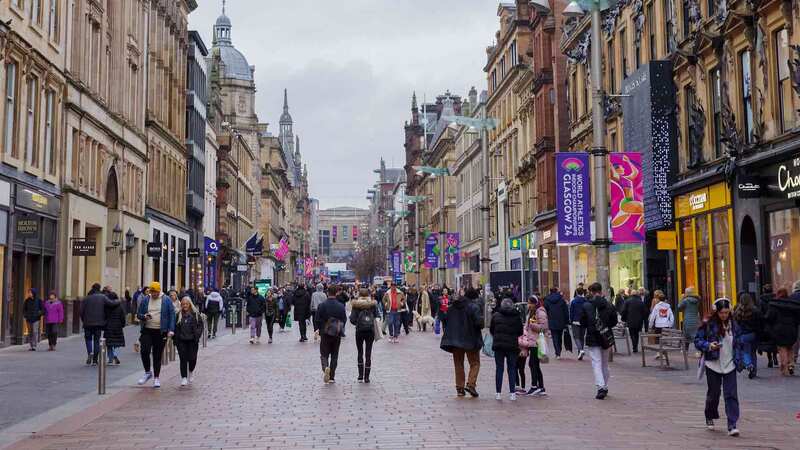You are viewing your 1 free article this month. Login to read more articles.
BA warns rates hike will leave some 'crippled'
The Booksellers Association (BA) this week warned Treasury chief secretary David Gauke that planned increases to business rates bills this April will result in many booksellers’ businesses being “absolutely crippled”.
The revaluation of business rates—a tax on non-residential properties based on what could be charged in annual rents (rateable value)—stands to provide a hammer blow to high street bookshops, particularly those based in London and the south-east, thanks to soaring property values.
Amplified by a two-year delay by the government, the revaluation means properties will be valued based on their 2015 rental values rather than their 2008 values, the impact of which one bookseller said represented “a sword in the side of the high street”.
Widespread concern
Widespread concerns have pushed Chancellor of the Exchequer Philip Hammond to backpedal, promising to at least consider allocating new funds in his March budget to help the worst-hit independent businesses weather the rises. If forthcoming, this step would build on government measures aimed at tempering the rate rise, involving doubling rate reliefs for small business and those with a property of a rateable value
of £12,000 or under. Meanwhile “tapered relief” is on offer for those valued below £15,000. However, no extra money will be on offer to chain retailers.
The changes to the system will produce both winners and losers. For those just outside the bracket to qualify for transitional relief, the hefty bills will complete a “triple whammy” of extra costs after business owners had to negotiate a rise in the minimum wage and new requirements for pension enrolment.
“We have been selling books since 1972 and I don’t think I’ve ever seen such unprecedented rises in costs [that] I have no control over,” said Tim Walker, manager at Walkers Bookshops. He anticipates that his two premises, in Oakham (East Midlands) and Stamford (Lincolnshire), will have to tackle business rates rises of a third and 50% respectively.
In London, manager Ben Hillwood-Harris at Artwords, which has shops in Shoreditch and London Fields, revealed that its rates were “nearly doubling”, while Denise Jones, director of Brick Lane Bookshop in east London, said she was bracing herself for a three-fold hike. Jones said her shop had been pushed outside the bracket for tax relief by gentrification in the area driving up property prices. Jeanette Winterson, who recently closed her nearby grocery shop, noted: “At least I own the building, so I have choices . . . Most shopkeepers won’t.”
Brett Wolstencroft, manager at Daunt Books, told The Bookseller the mini-chain felt “trapped” by the situation, and was steeling itself for a 100% rise in rateable value of its Marylebone shop; in effect, a rise of £50,000 annually. “This will have a huge impact and businesses can’t sustain it. We are trapped. Bookshops, more than other businesses, can’t just look at other premises,” he said.
After more than 15 years as manager at Camden Lock Books in north London, Jason Burley said expected cuts into his profits might force him into an early retirement.Likely to see a 10% rise, he said: “I can’t cut staff wages. Any notion of cutting any expenses by 10% would be completely unthinkable and I can’t add 10% onto book prices. It’s going to be a complete incursion on whatever profits I make.”
But for others, the rate change is good news, with south-west London indie Wimbledon Books expecting to make savings of around £2,500 per year under the new system.
As a chain bookseller, Daunt Books will not be entitled to any transitional relief under the new rates system.
Unfair advantage
The business rates system has been criticised in some quarters for penalising physical retailers and not online outlets, an issue the chancellor has admitted poses “a challenge”. Calling the status quo “frankly archaic” in a letter to Gauke this week, the BA said that the system was not fit for purpose because multinational online retailers, operating out of out-of-town warehouses, stand to benefit at the expense of bricks-and-mortar shops. Nine Amazon distribution centres in England and Wales will be able to make savings of £148,000 in property tax liabilities despite the company recording annual sales in excess of £6bn, the BA said.
Of the chains, which are denied any transitional relief come April, Blackwell’s will see its business rates bill increase by 20% across its estate, with its Oxford flagship (a 32% rateable value increase) and its branch in Holborn, central London (50%) among its worst-hit locations. Waterstones, meanwhile, has budgeted for a £2m-a-year increase to its bill. M.d. James Daunt called it an “injustice” against physical bookshops and, after recent headlines concerning Amazon’s creation of new jobs in the UK, he questioned whether these represented even “a small fraction in number of the high-quality, flexible jobs in the heart of communities that they destroy”. He added: “The rates system, imposing huge additional costs on high-street retailers, allows Amazon to drive its competitive advantage to wreak this devastation. The consumer enjoys lower prices [through Amazon] but to a considerable degree [it is] simply because it pays less tax.”
Paul Currie, c.e.o. of Foyles, said he would reserve judgement until March’s budget, but also commented: “The new structure does benefit the ‘shed’ fulfilment operations associated with ‘pure-play internet retailers’. I think that some recognition of that could have been incorporated into the revised business rates.”
Burley added: “For Amazon to get a fantastic break with reductions in its business rates is just appalling. I can’t understand what the government wants to do. Does it want lots of empty shops on the high street?”
In France, many bookshops are given tax breaks because they are considered to be a cultural asset to the community. An arm of the French culture ministry, the Centre National du Livre, has since 2009 deemed more than 500 indie bookshops to be Libraires Indépendantes de Références, a status that gives them an exemption from business taxes.
The idea that bookshops have similar societal value in the UK, as well as attracting footfall to the nation’s high streets and helping to tackle the government’s literacy targets, is what the BA is hoping will help bookshops on the high street. Should the government see “bookshops as cultural hubs, or as Assets of Community Value, with a 20% reduction in business rates, [it] would go a long way to recognise both the importance of bookshops and the role they play across so many areas of our national life,” argued Tim Godfray, BA c.e.o., in closing his plea to the Treasury to allay trade fears ahead of the budget on 8th March.
Walker added: “The government needs to decide what kind of a high street it wants and the kind of society it wishes to encourage.”
How are business rates charged?
Business rates are charged to businesses that occupy non-residential or commercial properties, and are paid by either the owner or leaseholder.
They are calculated by multiplying the rateable value of a property—an estimate of its open market rental value by the government’s Valuation Office Agency—against a “multiplier” set by the government, known in Scotland as “poundage”. The multiplier is the number of pence per pound of rateable value that will have to be paid in business rates, before any relief is deducted.
The rateable value is usually reviewed every five years, taking into account factors such as the size of a property and its usage, while the multiplier is reviewed annually by the government in line with inflation. For 2017 to 2018, this is expected to fall from 49.7p to 48p (and from 48.4p to 46.7p for small businesses).
Usually, councils will send out business rates bills in March or April, but businesses can find what they would expect to pay in advance by using an online tool at www.gov.uk/calculate-your-business-rates.
How are booksellers responding?
Kate Willemite - Finance director at Blackwell’s
“We won’t be passing it onto our customers and we want to retain our staff, so we will have to see where we can streamline costs elsewhere to manage the increase or take it as hit.”
Michael Goodwin - Owner of Highgate Bookshop, North London
“It will be another sword in the side for the high street retailer. It will be another cut of our profits. The cost of running the business will be higher. It will be only estate agents and charity shops who can stay.”
Catherine Barter - Co-manager of Housmans Bookshop, Caledonian Road, North London
"We are still waiting to find out [the final cost], but it looks manageable—although margins are always tight, so it is never good. The uncertainty is unhelpful in itself.”
Mark Adams - Co-manager, Stoke Newington Bookshop and Stoke Newington Toys and Books, North London
“This reminds me of the Poll Tax, in that it started out as a decision to make things fairer and has become hugely unpopular.”
Paul Currie - Chief executive officer, Foyles
“Any change in the cost of operation of a retail business is clearly a challenge. As Foyles is primarily a London-based retailer, the impact is heavier than [on] retailers that are spread throughout the country.”
James Daunt m.d., Waterstones
“London has huge increases everywhere and the South-East in general will increase substantially. It will drive out diversity from the smaller high streets in particular.”

















